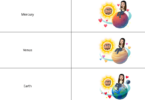Twitter tracks surfers through the netTo learn more about users, Twitter now uses so-called tracking cookies. If you do not want to be observed during surfing, you can turn it off 🙂
The Twitter short message service has changed its privacy policy and its terms of use. Most important innovation: The Twitter button, which is installed on many websites to share their content, now has an espionage function.
On the company’s blog, Othman Laraki, who is responsible for “growth”, announced that it would make Twitter more accessible to new users, and to implement “tailored suggestions”, ie, user-specific recommendations.
Twitter is actually a cross for beginners. The real benefit can be drawn from the service, who has assembled a list of people who are interested in and whose tweets he wants to follow. This search however can be frustrating in the sea at pseudonyms and nicknames. As a result, new users will be offered interesting accounts for them.
A comprehensible idea for a manager who cares about the growth of the company. The problem is the necessary data. In order to be able to suggest something new to a new user, it must already know it before it logs in at all. Exactly this is now a big task!.
Tracking cookies
The Twitter button, which is integrated on many pages, to share texts, videos or pictures, can therefore be even more in the future. It now contains a script that looks at every browser and leaves it a so-called cookie
It is as if a couple of joking folks put a piece of paper on the back of the schoolyard. Anyone who can see the note afterwards now knows that the bearer has passed the rumble. And thanks to these so-called tracking cookies, Twitter now knows which websites a browser and its users have visited before.
If a new user comes to the page of Twitter, they search for the cookies and sees, for example, that the one was often at Spiegel Online and rarely at the Focus. As a result, Twitter suggests to follow users who have a similar surfing behavior – tailored suggestions. This is currently being tested with “some users”, says the announcement. In the future, however, it could become the standard to recommend regular things for regular twitter users
Although these data will be deleted after 18 months and Twitter is assured that it will not be passed on to anyone. Nevertheless, such collections are regularly used by data protectors to shake the head. Twitter is trying to dispel these concerns with another announcement.
Privacy is not the default setting
At the same time, the company stated that the service would respect the so-called Do-Not-Track Initiative. Different browsers now offer the possibility to tell other websites that the user does not want to be tracked. To do this, the Firefox in the settings under Privacy, the point “Websites that I do not want to be tracked” must be attached. Internet Explorer and Chrome also allow this, the latter via a program, which must be installed additionally.
This works however only, if the opposite, ie the visited website, which also accepts. The fact that Twitter is part of it is at least a signal. However, it is nice and good and more than Facebook is willing to do. It is not enough. In fact, such monitoring procedures can only be used if the surfer has explicitly agreed with them and not if they can shut them down, but they can only apply to them all.







